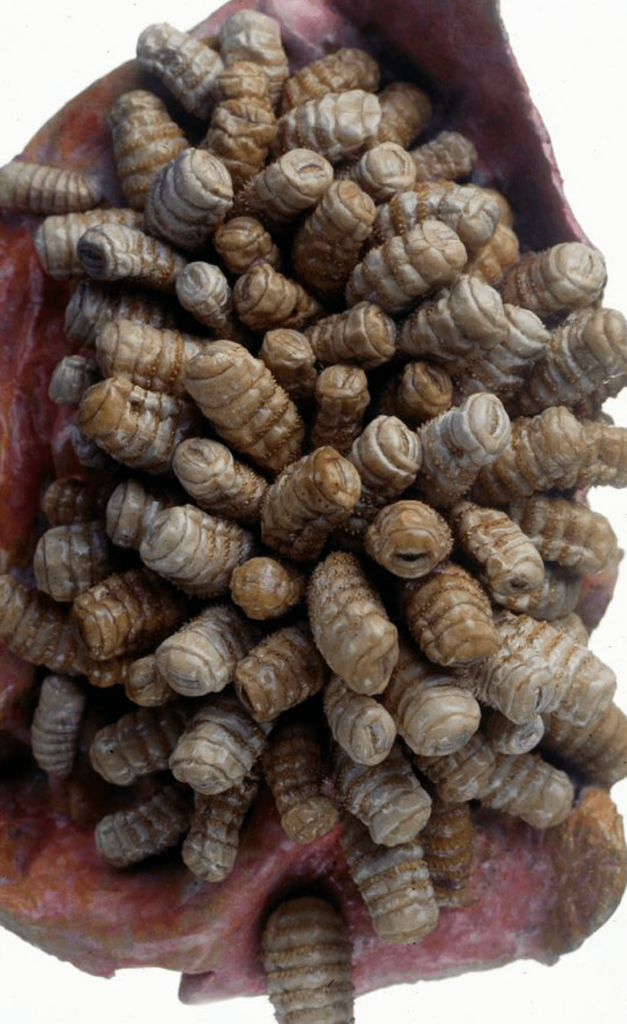Gasterophilus intestinalis, also called the horse bot fly, is a parasite bug that can hurt a horse’s health. These bugs lay their eggs on a horse’s body. When the horse licks or grooms itself, it eats the eggs.

When larvae hatch, they can cause itching, pain, and damage inside the body. Gasterophilus intestinalis must be kept away from your horse if you want to keep them healthy and avoid health problems. In this post, we’ll talk about effective ways to keep horsebot flies from hurting your horse.
When you groom your horse often, you not only keep it looking good, but you also get rid of blight eggs from its hair. Use a cleaning mitt or brush to get rid of any eggs or larvae that have been laid on the horse’s hair.
How important time is Horsebot flies are seasonal insects that are most busy when it’s warm outside. If you know how long they live, you might be able to guess when they will be active and take the right precautions.
Use Fly Repellents: You can keep horse flies away from your horse if you use fly repellents that are safe for horses. Follow the directions on the package and repeat as needed.
Fly Sheets and Masks: Putting a fly sheet and a fly mask on your horse protects it from the sun and bugs that bite. It also keeps fly eggs from getting in.
Keep Stables and Pasture Areas Clean: To cut down on the number of bot fly eggs, keep your horse’s living area, including stables and pastures, clean. Getting rid of manure and trash can make it harder for flies to lay their eggs.
Maintain Good Hygiene: Fly outbreaks are less likely to happen if your horse lives in a clean and sanitary place. Clean the water buckets and feed troughs often to keep flies away.
Use a planned plan to get rid of worms: Work with your vet to come up with a plan for deworming your horse that fits its needs. Botfly larvae in the stomach of a horse are killed by certain deworming drugs.
Use a bot knife or other grooming tools to remove bot fly eggs from your horse’s hair by hand. Pay close attention to the legs, shoulders, and hair, which are common places for flies to lay eggs.
Rotate Pasture: Changing fields often will help break up the life cycle of bot flies, making them less common in your horse’s environment as a whole.
Some horse owners think that adding garlic or apple cider vinegar to their horse’s food might help keep flies away. Even though more study needs to be done on how useful they are, these natural supplements are worth looking into.
Bot fly traps can help catch adult flies before they lay eggs on your horse. These traps can be bought at stores. Putting these traps in the right places can help cut down on the number of flies in the area.
Consult Your Veterinarian: If you think botfly larvae have infested your horse, talk to your vet about the best way to treat the problem. They can offer drugs to get rid of worms and other ways to fix the problem.
To keep Gasterophilus intestinalis from hurting your horse, you need to be careful, plan ahead, and take precautions. By learning about the bot fly’s life cycle and using the tips above, you can lower the chance of an infestation and keep your horse healthy and comfortable.
Remember that every horse is different, so work with your vet to come up with a plan that will protect your horse from these annoying bugs.